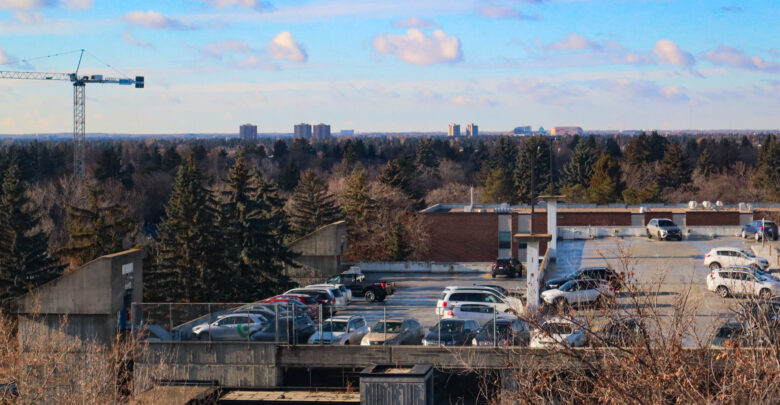What’s behind the price of parking at the U of A?
The price of monthly parking permits have increased by 20 per cent as of April 1.
 Leah Hennig
Leah HennigTuition isn’t the only cost for students attending the University of Alberta. Rent, groceries, and transportation are additional costs students have to pay for. And many are feeling the pressure of those costs.
On April 1, the U of A increased the price of monthly parking permits by 20 per cent. Now, the monthly permits on North Campus range from $135 to $320 per month. For some students and staff, the extra cost is frustrating.
The Gateway interviewed Kevin Moffitt, the director of retail operations at the U of A, about parking at the U of A. Moffitt oversees the operations of the U of A Bookstore, Glen Sather Sports Medicine Clinic, transportation services, and Parking Services.
He said the U of A reviews the parking rates on a regular basis. The university considers operational costs, maintenance costs, capital improvements, and comparison to other parking providers, according to Moffitt.
“These decisions aren’t made lightly,” Moffitt said.
“They involve input from our operations staff, the leadership teams, and they’re to ensure Parking Services remain financially sustainable while we continue to meet the safety, accessibility, and environmental standards that are set out for us.”
The costs behind Parking Services
Moffitt explained what’s behind the different prices at different lots. He used the Education Carpark as an example, saying it is one of the most popular parkades. Moffit said because of the demand and the convenience of parking there, the university charges more. Currently, a monthly permit is $180 or $230 for a private stall.
He said the university does offer some cheaper alternatives, such as the Jubilee Surface Lot, which is $134 per month.
Moffitt also mentioned that the university has started selling monthly permits at Lot 65, which is located at the U of A’s South Campus. The current price is $97 per month.
“So a student who has a U-Pass can then park at that location, jump on the LRT and travel to any of the campuses that they need,” Moffitt said.
Moffitt said there is no consultation done with students or staff at the university before changes are made to the parking prices. He said this is because it is an operational decision.
“We have to charge what we have to charge there for it,” he said.
The U of A’s Parking Services is a for-profit service at the university. U of A media relations confirmed that in 2024–25 the combined surplus of Campus Services, including parking, was $11,384,933.
Moffitt said that while Parking Services contributes to the university’s budget, costs to maintain the parking lots and parkades have increased.
“In the 2021–22 fiscal year, our maintenance budget was $1 million. This upcoming fiscal year, it’s gonna be $4 million,” he explained.
He said there’s also costs associated with staffing and higher tech parking equipment, including cameras that monitor people’s license plates. Cleaning and snow removal are other costs associated with Parking Services.
Misconceptions and frustrations about parking
The Gateway asked about the misconception that the U of A sells more monthly permits than there are parking spots available.
Moffitt said the university actually does the opposite — it sells less monthly permits than it could. He explained that Parking Services reserves roughly 20 per cent of parking for daily parking.
The Gateway also asked him about the frustration some staff have with having to pay for parking, especially as the cost of permits increases.
Moffitt said that when the downtown police station had free parking, the Edmonton Police had to pay the Canada Revenue Agency a taxable benefit. That means the employees were responsible for paying for the tax on that benefit.
He also added that “the university encourages staff to use affordable means for things like transportation or transit.”
Moffitt said that the staff unions haven’t asked for “any change to the way parking is done on campus” in their collective agreements.
CORRECTION: This article was updated at 12:10 p.m. on June 4 to correct a previous version which stated that Moffitt’s portfolio oversees the Students’ Union Building and that Parking Services falls under transportation services. The Gateway regrets this error.




